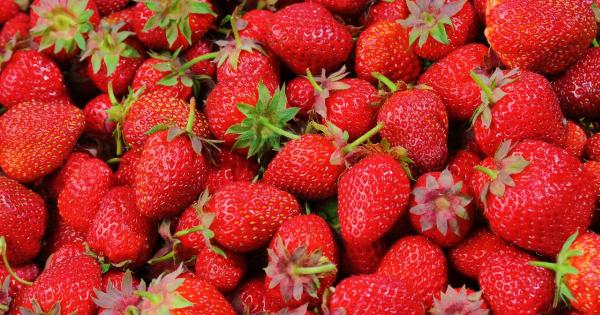Pregnancy is a special time in a woman’s life when she needs to pay extra attention to her diet and lifestyle. Eating a balanced and nutritious diet is crucial for both the mother and the developing baby.
However, there are certain foods that pregnant women need to avoid due to potential risks they pose. This article will discuss the no-no list of foods that should be avoided during pregnancy.
1. Raw or Undercooked Meat and Seafood
Raw or undercooked meat and seafood can contain harmful bacteria and parasites, such as Salmonella, E. coli, and Listeria. These can cause food poisoning and potentially harm the developing baby.
It is essential to ensure that all meat and seafood are cooked thoroughly before consumption to eliminate any potential risks.
2. Unpasteurized Dairy Products
Unpasteurized dairy products, including milk, cheese, and yogurt, may contain harmful bacteria like Listeria, which can lead to pregnancy complications. It is important to choose only pasteurized dairy products to minimize the risk of infection.
3. Raw Eggs
Raw eggs or foods containing raw eggs should be avoided as they can be contaminated with Salmonella. This means avoiding foods like homemade mayonnaise, Hollandaise sauce, or any dish that includes raw or partially cooked eggs.
Opt for pasteurized eggs instead, which are safe to consume.
4. Certain Fish High in Mercury
Fish is a great source of omega-3 fatty acids and other essential nutrients. However, some types of fish, such as shark, swordfish, king mackerel, and tilefish, are known to contain high levels of mercury.
Mercury consumption during pregnancy can lead to developmental delays and brain damage in the baby. It is advisable to choose fish that are low in mercury, such as salmon, trout, tilapia, and catfish.
5. Raw Shellfish
Raw shellfish, including oysters, clams, and mussels, should be avoided during pregnancy as they can carry harmful bacteria and viruses. These can cause various infections that may lead to significant health risks for both the mother and the baby.
Cooked shellfish, however, can be consumed safely.
6. Caffeine
While there is no specific guideline on caffeine consumption during pregnancy, it is recommended to limit the intake. High levels of caffeine have been associated with an increased risk of miscarriage and preterm birth.
It is advisable to keep the caffeine intake below 200 mg per day, which is roughly equivalent to one 12-ounce cup of coffee.
7. Alcohol
Alcohol should be strictly avoided during pregnancy as it can cause severe developmental issues and birth defects. Heavy drinking during pregnancy can lead to fetal alcohol syndrome, which can cause physical and mental disabilities in the baby.
It is better to be safe and completely abstain from alcohol throughout pregnancy.
8. Unwashed Fruits and Vegetables
Raw fruits and vegetables are generally healthy choices for pregnant women, providing essential vitamins, minerals, and fiber. However, it is important to wash them thoroughly to remove any bacteria or parasites present on the surface.
This is crucial to minimize the risk of foodborne illnesses.
9. Artificial Sweeteners
Some artificial sweeteners, such as saccharin, aspartame, and sucralose, should be avoided or limited during pregnancy.
Although they are considered safe in moderate amounts, it is best to consult with a healthcare professional regarding their consumption. Natural alternatives like honey or stevia can be used as safer options.
10. Unpasteurized Juices
Unpasteurized juices can carry harmful bacteria, including E. coli and Salmonella. It is important to opt for pasteurized juices or freshly squeezed juices prepared at home using properly washed fruits.
This minimizes the risk of infections that can harm both the mother and the baby.






















